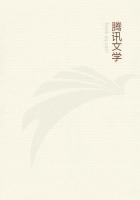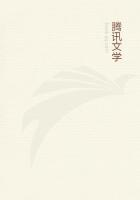If you want to know any more, I'm not very well able to tell you;but my Lady Rackrent did not die, as was expected of her, but was only disfigured in the face ever after by the fall and bruises she got; and she and Jason, immediately after my poor master's death, set about going to law about that jointure; the memorandum not being on stamped paper, some say it is worth nothing, others again it may do; others say Jason won't have the lands at any rate; many wishes it so. For my part, I'm tired wishing for anything in this world, after all I've seen in it; but I'll say nothing--it would be a folly to he getting myself ill-will in my old age. Jason did not marry, nor think of marrying Judy, as Iprophesied, and I am not sorry for it: who is? As for all Ihave here set down from memory and hearsay of the family, there's nothing but truth in it from beginning to end. That you may depend upon, for where's the use of telling lies about the things which everybody knows as well as I do?
The Editor could have readily made the catastrophe of Sir Condy's history more dramatic and more pathetic, if he thought it allowable to varnish the plain round tale of faithful Thady. He lays it before the English reader as a specimen of manners and characters which are perhaps unknown in England. Indeed, the domestic habits of no nation in Europe were less known to the English than those of their sister country, till within these few years.
Mr. Young's picture of Ireland, in his tour through that country, was the first faithful portrait of its inhabitants. All the features in the foregoing sketch were taken from the life, and they are characteristic of that mixture of quickness, simplicity, cunning, carelessness, dissipation, disinterestedness, shrewdness, and blunder, which, in different forms and with various success, has been brought upon the stage or delineated in novels.
It is a problem of difficult solution to determine whether a union will hasten or retard the amelioration of this country. The few gentlemen of education who now reside in this country will resort to England. They are few, but they are in nothing inferior to men of the same rank in Great Britain. The best that can happen will be the introduction of British manufacturers in their places.
Did the Warwickshire militia, who were chiefly artisans, teach the Irish to drink beer? or did they learn from the Irish to drink whisky?
*GLOSSARY
SOME FRIENDS, WHO HAVE SEEN THADY'S HISTORY SINCE IT HAS BEENPRINTED HAVE SUGGESTED TO THE EDITOR, THAT MANY OF THE TERMS ANDIDIOMATIC PHRASES, WITH WHICH IT ABOUNDS, COULD NOT BEINTELLIGIBLE TO THE ENGLISH READER WITHOUT FURTHER EXPLANATION.
THE EDITOR HAS THEREFORE FURNISHED THE FOLLOWING GLOSSARY.
GLOSSARY 1.
MONDAY MORNING--Thady begins his memoirs of the Rackrent Family by dating MONDAY MORNING, because no great undertaking can be auspiciously commenced in Ireland on any morning but MONDAYMORNING. 'Oh, please God we live till Monday morning, we'll set the slater to mend the roof of the house. On Monday morning we'll fall to, and cut the turf. On Monday morning we'll see and begin mowing. On Monday morning, please your honour, we'll begin and dig the potatoes,' etc.
All the intermediate days, between the ****** of such speeches and the ensuing Monday, are wasted: and when Monday morning comes, it is ten to one that the business is deferred to THE NEXTMonday morning. The Editor knew a gentleman, who, to counteract this prejudice, made his workmen and labourers begin all new pieces of work upon a Saturday.
GLOSSARY 2.
LET ALONE THE THREE KINGDOMS ITSELF.--LET ALONE, in this sentence, means put out of consideration. The phrase, let alone, which is now used as the imperative of a verb, may in time become a conjunction, and may exercise the ingenuity of some future etymologist. The celebrated Horne Tooke has proved most satisfactorily, that the conjunction but comes from the imperative of the Anglo-Saxon verb (BEOUTAN) TO BE OUT; also, that IF comes from GIF, the imperative of the Anglo-Saxon verb which signifies TO GIVE, etc.
GLOSSARY 3.
WHILLALUH.--Ullaloo, Gol, or lamentation over the dead--Magnoque ululante tumultu.--VIRGIL, Ululatibus omne Implevere nemus.--OVID.
A full account of the Irish Gol, or Ullaloo, and of the Caoinan or Irish funeral song, with its first semichorus, second semichorus, full chorus of sighs and groans, together with the Irish words and music, may be found in the fourth volume of the TRANSACTIONS OF THE ROYAL IRISH ACADEMY. For the advantage of LAZY readers, who would rather read a page than walk a yard, and from compassion, not to say sympathy, with their infirmity, the Editor transcribes the following passages:-'The Irish have been always remarkable for their funeral lamentations; and this peculiarity has been noticed by almost every traveller who visited them; and it seems derived from their Celtic ancestors, the primaeval inhabitants of this isle. . . .
'It has been affirmed of the Irish, that to cry was more natural to them than to any other nation, and at length the Irish cry became proverbial. . . . .














